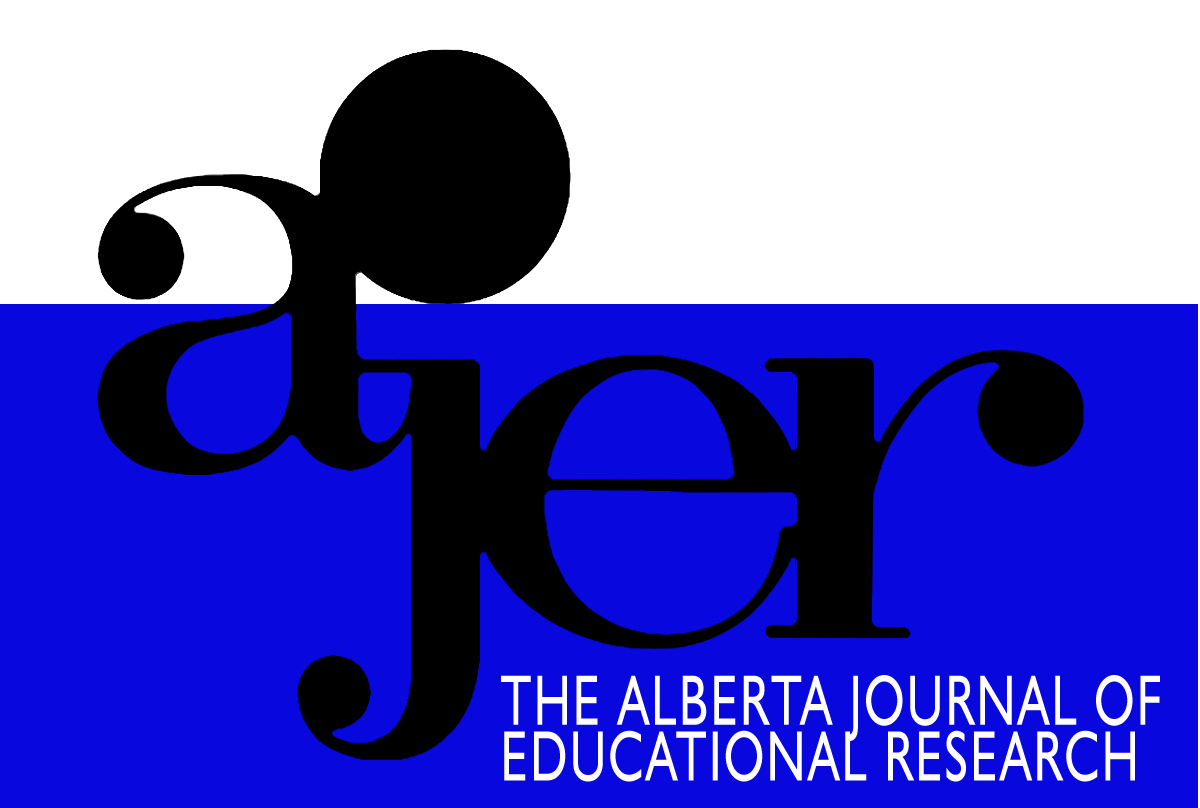Educating Preservice Teachers in a Neoliberal Era: Specialized Technicians or Public Intellectuals?
DOI:
https://doi.org/10.55016/ojs/ajer.v64i4.56361Keywords:
Neoliberalism, teachers’ work, teacher education, public intellectualAbstract
Neoliberalism’s influence on teacher education has intensified a view of teachers as skilled technicians trained to implement centrally developed curriculum rather than as public intellectuals who engage in self-reflection and critique. In this paper, reforms in the United States and England provide a context for discussing teacher education programs in Canada. Young and Boyd’s (2010) “modes of governance” and “images of teachers work” provide a way to conceptualize teachers as public intellectuals that may be useful to counter neoliberal conceptions. Since neoliberal reforms continue to influence both universities and K-12 education, teacher educators are uniquely challenged to maintain a critical perspective on the role of teacher education and teacher work.
L’influence du néolibéralisme sur la formation des enseignants a intensifié une perspective selon laquelle les enseignants sont des techniciens spécialisés et formés pour mettre en œuvre un programme d’études élaboré par des autorités centrales plutôt que des intellectuels publics qui pratiquent l’autoréflexion et l’autocritique. Cet article emploie des réformes aux États-Unis et en Angleterre comme cadre pour une discussion sur les programmes de formation des enseignants au Canada. Les « modes de gouvernance » et les « perceptions du travail des enseignants » de Young et Boyd (2010) offrent une façon de conceptualiser les enseignants comme des intellectuels publics. Ce moyen pourrait s’avérer utile pour contrer les perceptions néolibérales. Puisque l’influence des réformes néolibérales continue à se faire sentir dans le milieu universitaire et dans celui de l’éducation K-12, les formateurs d’enseignants sont confrontés au défi particulier de maintenir une perspective critique sur le rôle de la formation et du travail des enseignants.
Mots clés : néolibéralisme, travail des enseignants, formation des enseignants, intellectuel public
Downloads
Published
Issue
Section
License
UNIVERSITY OF ALBERTA COPYRIGHT LICENSE AND PUBLICATION AGREEMENT
If accepted, authors will be asked to sign a copyright agreement with the following points:
A. Where there is any inconsistency between this Copyright License and Publication Agreement and any other document or agreement in relation to the same subject matter, the terms of this Agreement shall govern.
B. This document sets out the rights you are granting in relation to publication of your article, book review, or research note entitled (the “Article”) through inclusion in the academic journal titled Alberta Journal of Educational Research (the “Journal”) published through the Faculty of Education, representing the Governors of the University of Alberta (the “Journal Editor”).
C. There will be no payment to you for this publication and grant of rights. In consideration of the agreement to publish the Article in the Journal:
1. You are warranting that:
- the content of the Article is your original work, and its content does not contain any material infringing the copyright of others; or, where the Article is not entirely your original work, you have obtained all necessary permissions in writing to grant the rights you are giving in this agreement;
- the content of the Article does not contain any material that is defamatory of, or violates the privacy rights of, or discloses the confidential information of, any other person;
- the Article has not been published elsewhere in whole or in part, and you will not allow publication of the Article elsewhere without the consent of the Journal Editor;
- the names of all co-authors and contributors to the Article are:
2. You agree to license the copyright in the Article to the Journal Editor, on a worldwide, perpetual, royalty free basis; and to the extent required by the terms of this agreement. You shall retain the right at all times to be acknowledged as the/an author of the Article.
3. You further agree that the Journal Editor has the entitlement to deal with the Article as the Journal Editor sees fit, and including in the following manner;
- The right to print, publish, market, communicate and distribute the Article and the Journal, in this and any subsequent editions, in all media (including electronic media), in all languages, and in all territories, ing the full term of copyright, and including any form of the Article separated from the Journal, such as in a database, abstract, offprint, translation or otherwise, and to authorize third parties to do so;
- The right to register copyright of the Journal;
- The right to edit the Article, to conform to editorial policy as the Journal Editor sees fit.
4. If any co-author or contributor to the Article does not sign this agreement, the Journal Editor reserves the right to refuse to publish the Article.



